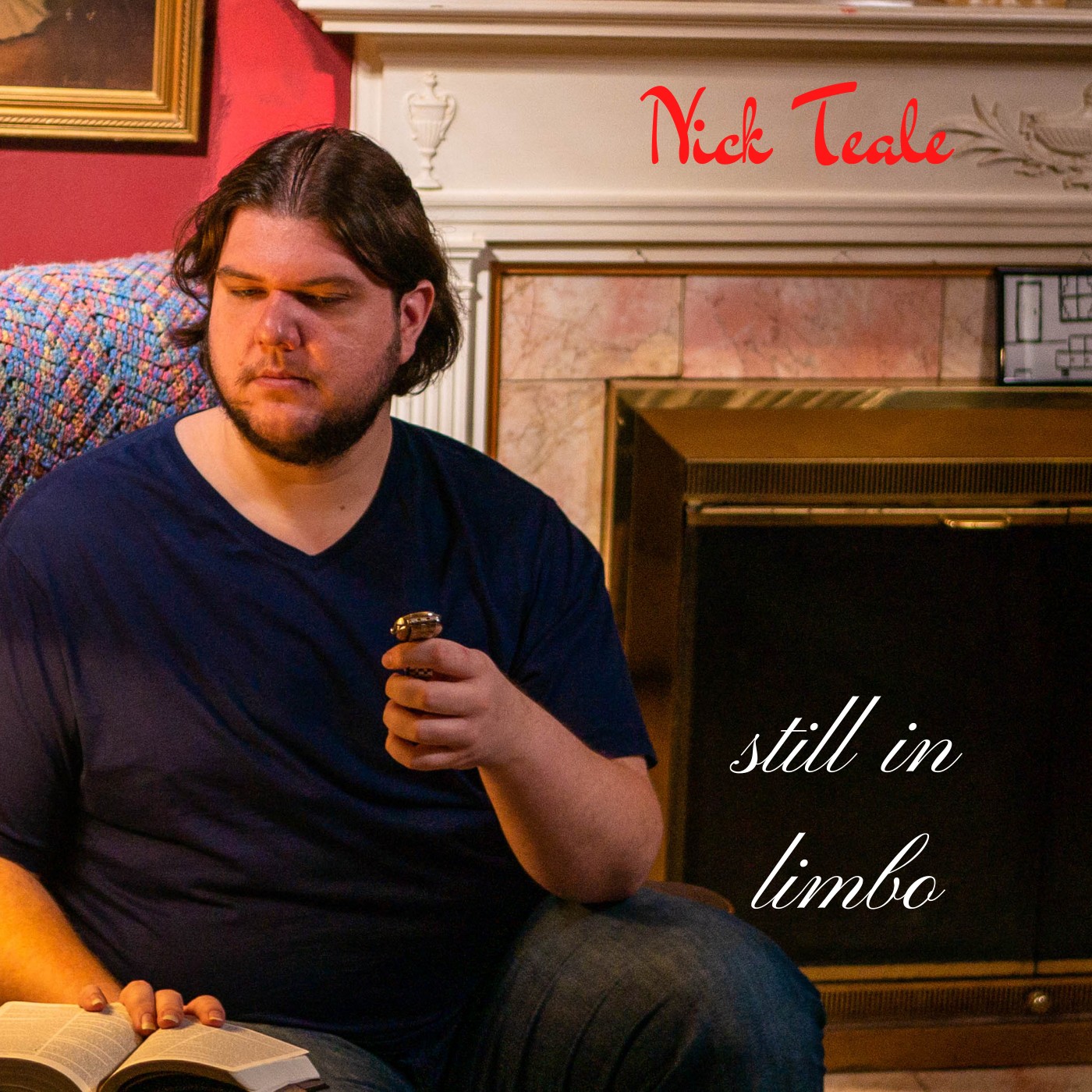 Today we’d like to introduce you to Nick Teale.
Today we’d like to introduce you to Nick Teale.
Hi Nick, we’d love for you to start by introducing yourself.
I was born in Louisville and raised mostly on rock music–I’ve been singing in choral programs since at least middle school. My mom used to ask me what I wanted to be when I grew up; I said I wanted to be a rock singer. She remained supportive but also encouraged me to have a career path in case music didn’t work out. Later in life, I found out I was good at learning languages, which not only became a marketable career skillset but also led to my extensive interest and experience in world music.
Especially since high school, I’ve always strived to branch out in new musical directions. My dad had CDs at home ranging from Handel and Pat Metheny to Santana and the Clash, and my extended family is full of musicians whose output ranges from folk and bluegrass to classical, jazz, and punk rock. I started learning guitar at 16, hoping to play rock music–but instead, my teacher ended up drawing me closer to jazz. Inspired by my mom’s love of the Beatles, I also learned to play the sitar in high school, which led me to explore many more world instruments.
In college, I played lap dulcimer in a bluegrass ensemble, performed in productions of Messiah and Carmina Burana, conducted research on Middle Eastern music for Arabic classes, and composed a heavily Dream Theater-influenced prog metal album for my senior project. I went to grad school for Middle Eastern studies, during which time I joined UT-Austin’s Middle Eastern Ensemble playing oud and saz (both of which feature on my Spotify tracks) and traveled across the Middle East learning more about the region’s cultures, languages, and music. In particular, my language and musical studies have taken me to Mexico, Spain, Lebanon, Jordan, Tajikistan, Kazakhstan, and Turkey during the 2016 coup attempt.
In the two years before the pandemic hit, I composed the songs that would eventually comprise my EP “Love Was” which debuted in January 2021. I spent the next two years gigging to promote that EP and working with my friend Austin Talbert to record my full-length album “Still in Limbo.” Since that album’s debut in May 2022, it’s been featured on radio stations and publications in Louisville, Lexington, Asheville, and even France and Brazil.
My experience with autism has remained a constant theme throughout my musical journey. Often autistic people have to push themselves harder to explore new boundaries in life, and over time I’ve transitioned from a classic rock snob with no interest in other genres to an eclectic performer whose compositions span rock, folk, jazz, hip-hop, Latin, Middle Eastern, and many more different types of music. My song “Solomon’s Verse” explores the contradiction between my autism diagnosis and my life as a middle-class white man–a contradiction I think is important to explore in music. I’m currently planning a future release where I’ll explore that further.
I’m sure you wouldn’t say it’s been obstacle free, but so far would you say the journey has been a fairly smooth road?
In some ways, no. Growing up autistic, I was often an outcast and a loner kid, and I didn’t have the same luck joining or forming bands that some of my friends had. Part of the reason I developed my intricate guitar style and turned to composition is that the bands I tried to organize never worked out, so I focused on working solo. Although the theoretical and technical aspects of music have come more naturally to me, I’ve also struggled with stage presence and crowd interaction, and that’s something I’ve worked on heavily over the past few years.
In other ways, it has been a smooth road. I’ve had an extensive family support network, including many people who are musically active in Louisville. I also had a professional diagnosis of autism, which not everyone is fortunate enough to have. My family’s encouragement of both my music and of having a side career has given me a financial background to pursue music, release an independent album, and even help others record their own songs. And I’ve had some truly incredible life experiences that enabled me to develop my musical palate even further.
I think another struggle of being a young autistic person is that the line between “autism” and “immaturity” becomes blurry. Of course, everyone struggles with personal growth and has problems with maturity in their life, but for neurodivergent people, our negative reactions can be so intense for those around us that it becomes difficult to tackle head-on. So instead of reckoning with our personal flaws and working through them, it can be easier to just up the dosage of Celexa. Looking back I suspect many of my classmates didn’t look at me and see a struggling autistic person–they probably saw an entitled middle-class white guy. And part of managing my autism has been distinguishing between those two parts of me to understand what I can and can’t change about myself.
Musically, this problem has manifested in my interactions with authority figures. Of course, teachers are heavily overworked, underpaid, and ill-equipped to handle the workload they have, but an autistic seven-year-old doesn’t have that context–they just see certain teachers being rude and hateful toward them. So when I had music teachers later in life who genuinely wanted to help me improve, there were times I’d have issues trusting that guidance or would be rebellious against it. In some ways, this could be an asset, as I pushed myself to find my own path musically. But moving past that distrust has been a major catalyst for my growth as a musician.
Alright, so let’s switch gears a bit and talk business. What should we know about your work?
I’m a Louisville-based singer-songwriter. I mostly do solo acoustic work, but I have some harder songs written for a full band, and I’m working on writing more.
What I specialize in: I have a hard rock background, but I’m also operatically trained, and my music spans from rock, folk, and metal to Turkish, blues, Latin jazz, and even Middle Eastern hip-hop.
What I’m known for: I have a wide vocal range trained in many different musical styles, and I have an intricate guitar-picking style influenced by jazz and bluegrass that allows me to incorporate rhythm and lead elements into my playing. I’ve had several songs featured on radio and blogs ranging from the local to the international, with my most popular being “Limbo,” “Solomon’s Verse,” “Water Ski,” “Rectangles,” and “Angel Wings” (the latter currently unreleased).
In the short term, getting my songs spun on Asheville radio. Longer term, I’m proud of having branched out into so many different genres and creating a synthesis of them that I feel comes off as eclectic without being pretentious.
What sets me apart from others: I think my musical background, the life experiences I’ve had, and the focus I have on melody and chord structure.
Where we are in life is often partly because of others. Who/what else deserves credit for how your story turned out?
Obviously my parents–they’ve been my biggest supporters since day one for reasons I’ve enumerated in previous sections.
I’ve had some amazing vocal coaches–Mark Kano, Sahel Salam, Galen Kentes, and Ken Tamplin come to mind–who’ve pushed me not only to develop better vocal technique but also to expand my horizons and musical interests. Kano in particular has seen me through some of my lowest personal moments and continued to push me further.
My choral directors–Melissa Weaver, Steve Lin, Nan Tate, Barbara Hall, Joseph Bolin, Suzanne Pence, and James Morrow–have all helped me develop the daily rigor and discipline needed to maintain my vocal health and continue growing as a musician.
My guitar teachers–Craig Wagner, Dan Worley, and Will Wilder–have pushed me in new directions I never thought I’d be interested in, and bear a lot of the responsibility for my drift toward jazz. Dan Worley also got me started understanding digital music production.
My music history professor Nathan Link, who also runs Centre College’s Kentucky ensemble, helped me gain a deeper appreciation for folk traditions and pop music. At the time I was composing elaborate atonal jazz and prog rock, but understanding what makes popular artists so successful has helped me to split the difference between the two realms.
My composition professor Larry Bitensky helped me develop my songwriting craft while also reining in some of my wilder musical impulses. He worked with me on the prog metal album I produced as my senior project and has continued to be an incredible force in my musical development.
On the world music side, Lexington oud maker George Wakim first piqued my interest in Middle Eastern languages and culture, and I’ve had so many friends and teachers abroad who’ve helped me continue this musical journey, including Ümit Şimşek, Mansur Bildik, and Kiyamuddin Naimuf. I also have many people from UT-Austin’s Middle Eastern Ensemble to thank–including but certainly not limited to Alex Kreger, Roberto Riggio, Sonia Seeman, and Julie Slim-Nassif.
In the Louisville music scene, I want to thank the open mic and karaoke crowds for helping me get started performing and honing my abilities–there are so many people here that I worry about slighting someone by omission.
As far as music releases–my first EP “Love Was” was a collaboration between me and Austin Talbert, and for my full album “Still in Limbo” he partnered with producer/sound engineer Travis Reynolds, drummer Gabriel Stockwell, bassist Eli Raines, hip-hop producer Daniel Marshall, the 502 Horns, mandolinist Jacob Head, and videographer Alex Souleyrette to create some incredible music that I hope you’re going to love!
Pricing:
- Still in Limbo album: $10 on Bandcamp
- Gig booking depends on location and context, but generally $50/hr in the Kentuckiana area
Contact Info:
- Instagram: https://www.instagram.com/hardrockguru3/
- Facebook: https://www.facebook.com/nicktealemusic
- Youtube: https://www.youtube.com/channel/UC0IYr508KoOCIn0d15ecb-g
- Other: https://open.spotify.com/artist/3LVybZne7aAXfdfL9eaTf8
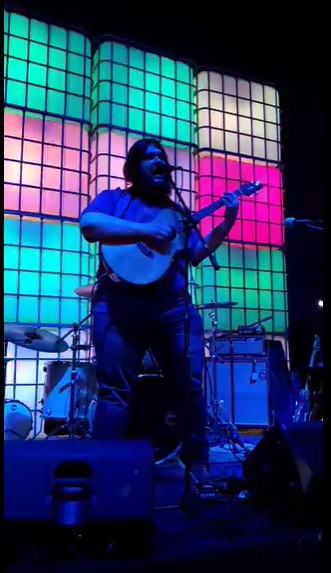
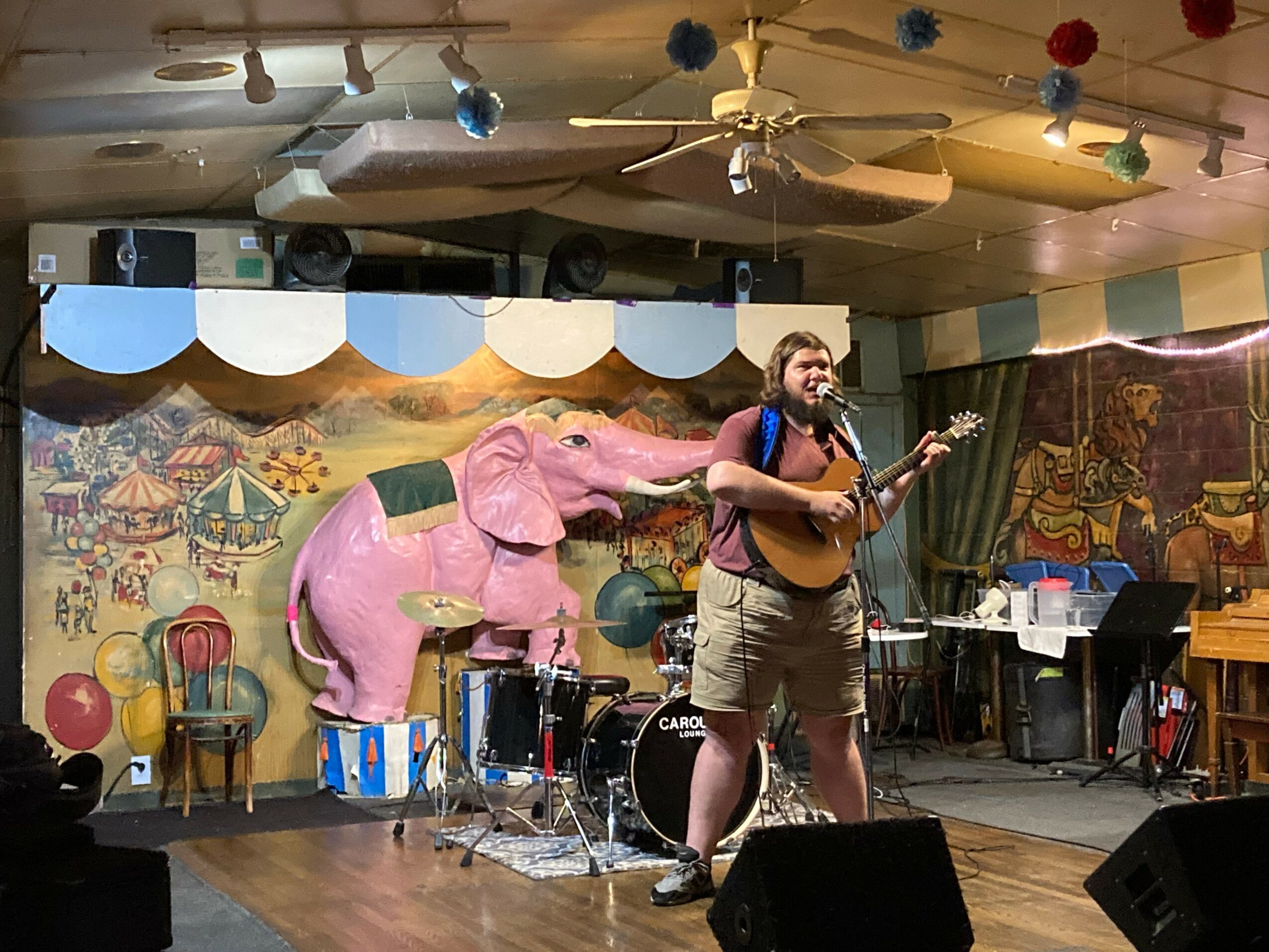
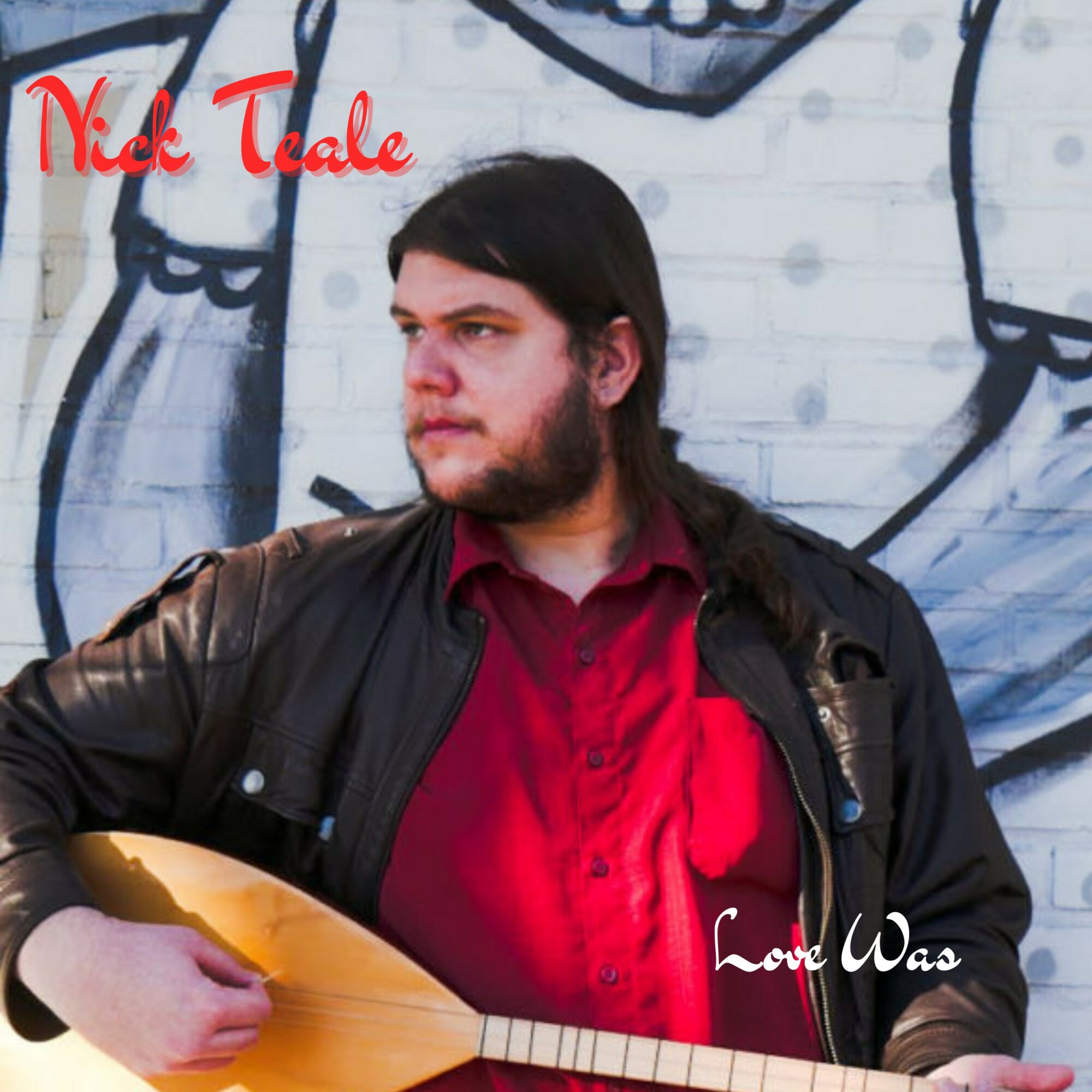
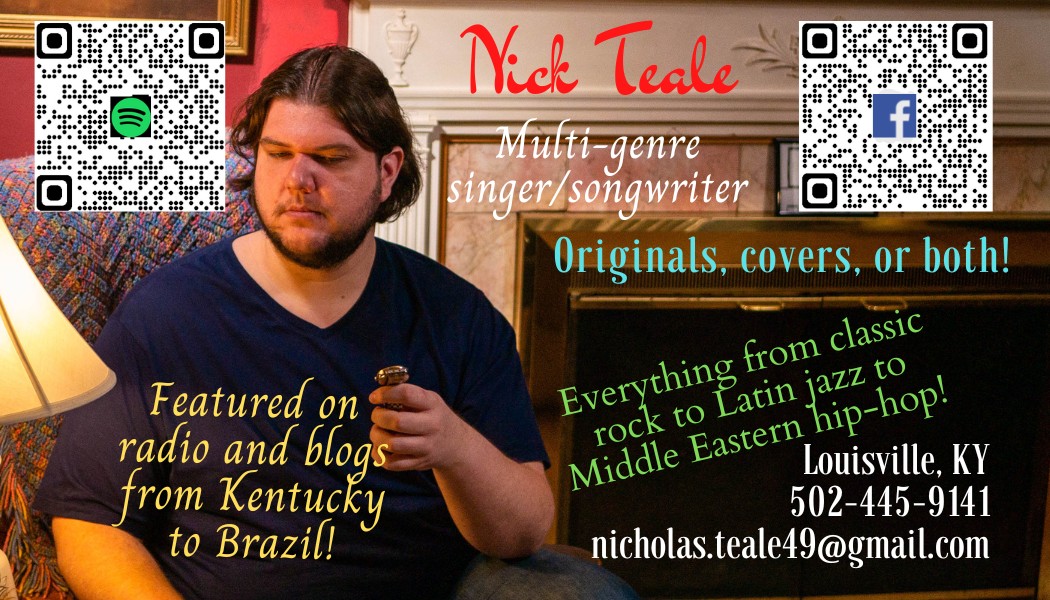
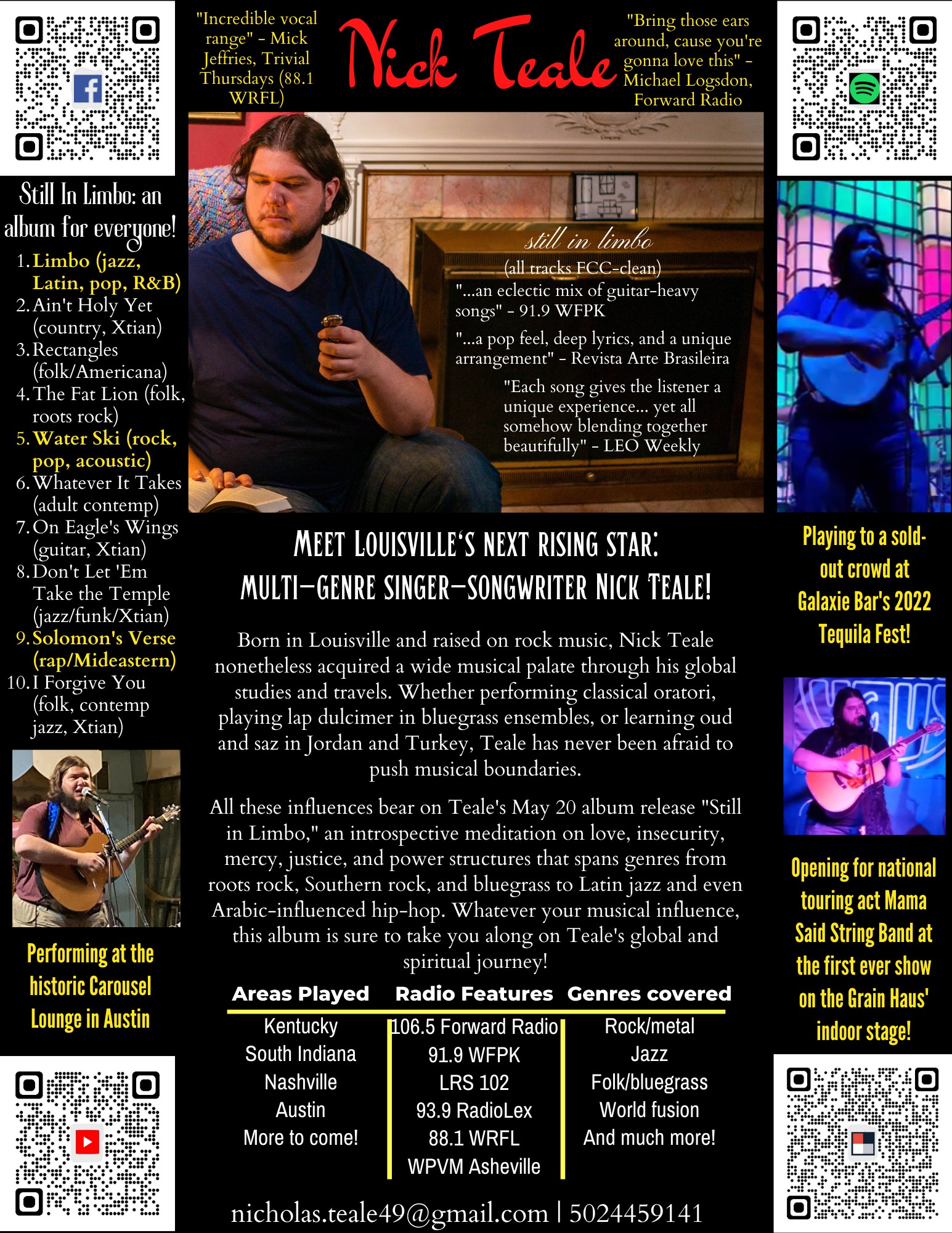

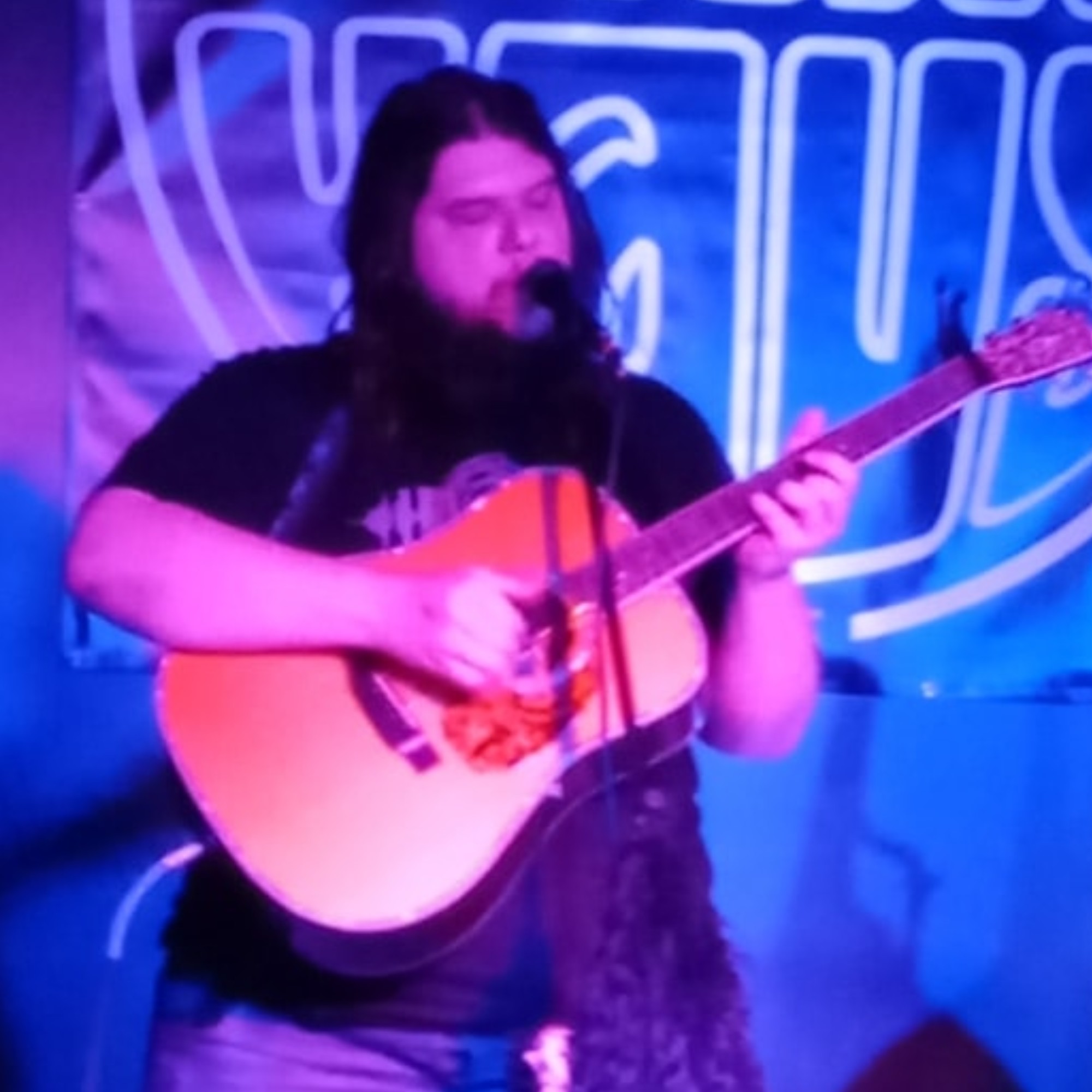 Image Credits
Image Credits
Alex Souleyrette












